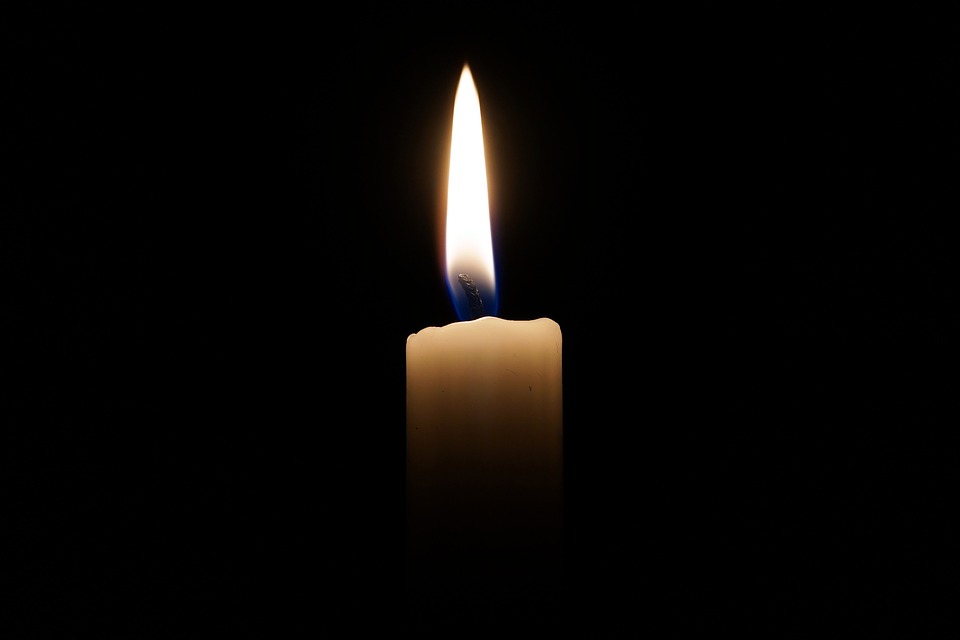by Selfa A. Chew
Translated by Toshiya Kamei
You no longer live,
nor will you sprout in me
because I barely survive
your death's absolute signature
and very soon, Julio,
we'll feel love is the most useless friend;
it takes more than a shout to rescue your memory.
For now we could keep looking
the place where they left your last smile,
there are still forty-three teachers,
forty-three hearts beating
in the hands of the mothers we'll never be.
After you, who would want the miracle of making babies
in the country where thought costs us our lives in flames?
Soon the door to Mictlán will open
the sugar skulls, all, bear your name
on the day of the warriors.
Tú ya no vives.
Ni siquiera en mi germinarás
porque apenas sobrevivo
la firma absoluta de tu muerte
y muy pronto, Julio,
presentiremos que el amor es el amigo más inútil,
(se precisa más que un grito para rescatar tu memoria).
Podríamos por ahora seguir buscando
el lugar donde dejaron tu última sonrisa,
aún quedan 43 maestros,
43 corazones palpitando
en las manos de las madres que ya nunca seremos.
Después de ti, ¿quién querría el milagro de hacer hijos
en el país donde el pensamiento nos cuesta la vida en llamas?
Pronto se abrirá la puerta al Mictlán
las calaveras de azúcar, todas, llevan tu nombre
en el día de los guerreros.

Little one, your whole life won't reach
to feel the moon's heartbeat.
Your sugar soul is so fragile
that it tightens in fear when it learns
how many centuries it takes a star
to let out a sigh for kissing your heels.
Maybe you don't know it, girl,
but a parrot spends eighty years
looking for the exact word
to call your attention when you walk sublimely in silence
in front of his colorful face.
I take care of useless tasks
to avoid spending the days imagining
my absence in your tall silhouette in wet strange streets
but every tree ends up saying goodbye
to the names carved in its trunk.
It's been very much worth living
the moment you were born
and growing with you to infinity
and beyond.
Pequeñita, toda tu vida no alcanzará
para sentir el latido de la luna.
Tan frágil es tu alma de azúcar
que se crisparía de susto al conocer
cuántos siglos le toma a una estrella
dar un suspiro por besarte los talones.
Tal vez no te enteres, hija,
que un loro invierte 80 años
buscando la palabra exacta
con que llamar tu atención cuando paseas sublime y silenciosa
frente a su cara de colores.
Me ocupo en inútiles tareas
Para no gastar los días imaginando
Mi ausencia en tu alta silueta en calles húmedas y extrañas
pero todo árbol termina despidiéndose
de los nombres marcados en su tronco.
Ha valido mucho la pena vivir
el instante en que naciste
y crecer contigo hacia el infinito
and beyond.

There are unharmed dead,
and ones that dissolve
unless love accompanies them
on the painful journey to memory.
There are also nameless dead.
Theyare placed in the water
and planted in the sand
along with other immigrants.
Downstream or in the desert pit
death is a story,
an inquiry.
It's a color,
a vestige of bodiless fabric.
Hay muertos ilesos,
y muertos que se disuelven
sin que el amor los acompañe
en el doloroso viaje a la memoria.
Hay también muertos sin nombre.
Esos se colocan en el agua
se plantan en la arena
junto a otros inmigrantes.
Río abajo o en la fosa del desierto
la muerte es una historia
una pesquisa,
es un color,
un vestigio de tela sin cuerpo.
Selfa A. Chew holds an MFA in Creative Writing and a PhD in History from the University of Texas at El Paso. Her books include the poetry collection Azogue en la raíz (2005), the novel Mudas las garzas (2007), which appeared in English as Silent Herons (2012), and Uprooting Community (2016), her study on Japanese Mexicans. Her poems can also be found in the bilingual anthology La Canasta (2019).
Toshiya Kamei holds an MFA in Literary Translation from the University of Arkansas. His translations of Latin American literature include My Father Thinks I’m a Fakirby Claudia Apablaza, South Exitby Carlos Bortoni, and Silent Heronsby Selfa Chew.
